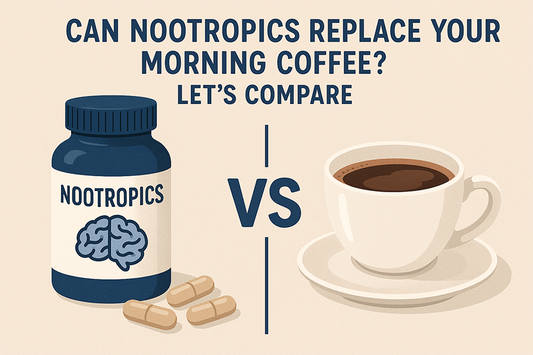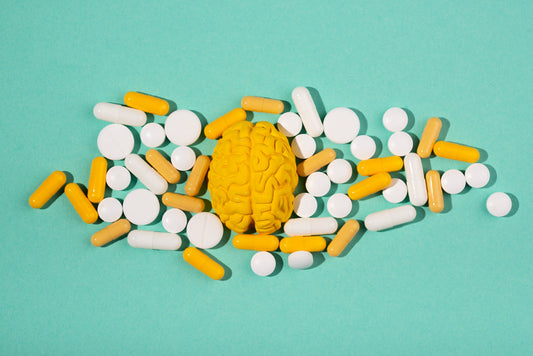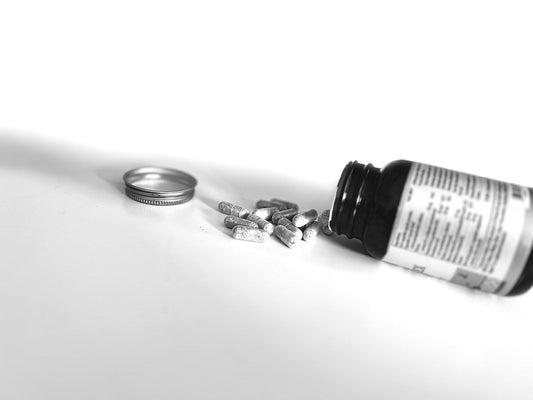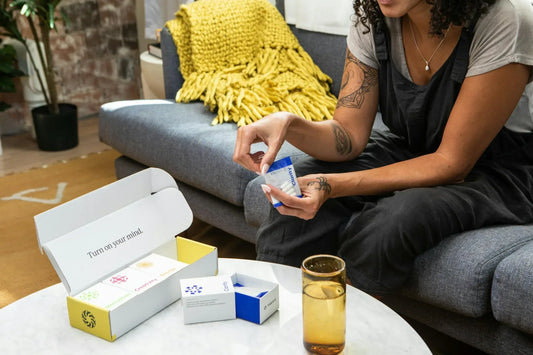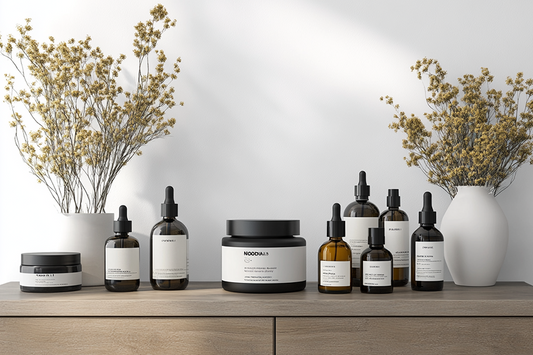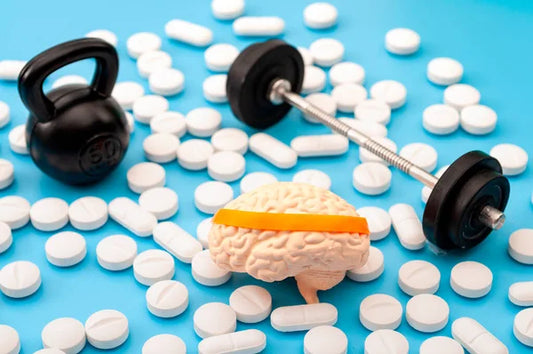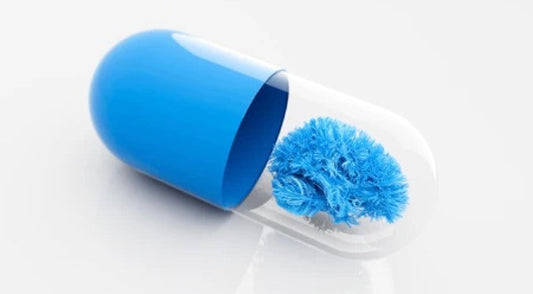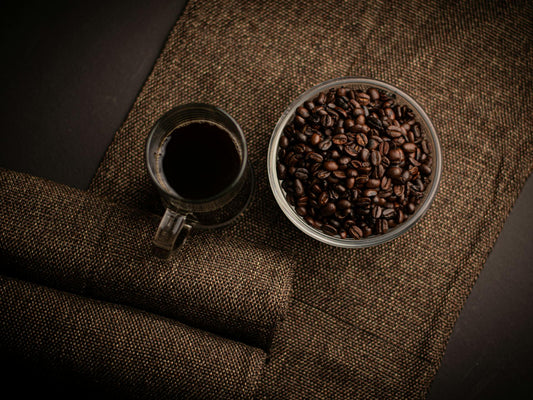-

Nootrocan 30000mg Nootropic Vegan Mushroom Capsules - 60 Caps
SALE OR RETURN GUARANTEE available for this product!Return within 120 days if unsold (see terms...SALE OR RETURN GUARANTEENootrocan 30000mg Nootropic Vegan Mushroom Capsules - 60 Caps
SALE OR RETURN GUARANTEE available for this product!Return within 120 days if unsold (see terms...SALE OR RETURN GUARANTEELogin to view price -

Nootrocan 10500mg Nootropic Mushroom Gummies 450g
SALE OR RETURN GUARANTEE available for this product!Return within 120 days if unsold (see terms) ...SALE OR RETURN GUARANTEENootrocan 10500mg Nootropic Mushroom Gummies 450g
SALE OR RETURN GUARANTEE available for this product!Return within 120 days if unsold (see terms) ...SALE OR RETURN GUARANTEELogin to view price -

Nootrocan 100000mg Nootropic 100% Mushroom Powder - 100g
SALE OR RETURN GUARANTEE available for this product!Return within 120 days if unsold (see terms) ...SALE OR RETURN GUARANTEENootrocan 100000mg Nootropic 100% Mushroom Powder - 100g
SALE OR RETURN GUARANTEE available for this product!Return within 120 days if unsold (see terms) ...SALE OR RETURN GUARANTEELogin to view price -

Nootrocan 15000mg Nootropic 50% Mushroom Tincture - 30ml
SALE OR RETURN GUARANTEE available for this product!Return within 120 days if unsold (see terms) ...SALE OR RETURN GUARANTEENootrocan 15000mg Nootropic 50% Mushroom Tincture - 30ml
SALE OR RETURN GUARANTEE available for this product!Return within 120 days if unsold (see terms) ...SALE OR RETURN GUARANTEELogin to view price -

Nootrocan 3000mg 10% Full-Spectrum CBD Nootropic Tincture - 30ml
Novel Food application number: RP438 SALE OR RETURN GUARANTEE available for this product!Return ...SALE OR RETURN GUARANTEENootrocan 3000mg 10% Full-Spectrum CBD Nootropic Tincture - 30ml
Novel Food application number: RP438 SALE OR RETURN GUARANTEE available for this product!Return ...SALE OR RETURN GUARANTEELogin to view price -

Nootrocan 1500mg 5% Full-Spectrum CBD Nootropic Tincture - 30ml
Novel Food application number: RP438 SALE OR RETURN GUARANTEE available for this product!Return w...SALE OR RETURN GUARANTEENootrocan 1500mg 5% Full-Spectrum CBD Nootropic Tincture - 30ml
Novel Food application number: RP438 SALE OR RETURN GUARANTEE available for this product!Return w...SALE OR RETURN GUARANTEELogin to view price -

Nootrocan 900mg Full Spectrum CBD Nootropic Capsules - 60 Caps
Novel Food application number: RP438 SALE OR RETURN GUARANTEE available for this product!Return w...SALE OR RETURN GUARANTEENootrocan 900mg Full Spectrum CBD Nootropic Capsules - 60 Caps
Novel Food application number: RP438 SALE OR RETURN GUARANTEE available for this product!Return w...SALE OR RETURN GUARANTEELogin to view price -

Nootrocan 450mg Full Spectrum CBD Nootropic Capsules - 30 Caps
Novel Food application number: RP438 SALE OR RETURN GUARANTEE available for this product!Return w...SALE OR RETURN GUARANTEENootrocan 450mg Full Spectrum CBD Nootropic Capsules - 30 Caps
Novel Food application number: RP438 SALE OR RETURN GUARANTEE available for this product!Return w...SALE OR RETURN GUARANTEELogin to view price -

Nootrocan 750mg Full Spectrum CBD Nootropic Dried Fruits - 300g
Novel Food application number: RP438 SALE OR RETURN GUARANTEE available for this product!Return w...SALE OR RETURN GUARANTEENootrocan 750mg Full Spectrum CBD Nootropic Dried Fruits - 300g
Novel Food application number: RP438 SALE OR RETURN GUARANTEE available for this product!Return w...SALE OR RETURN GUARANTEELogin to view price -

Nootrocan 375mg Full Spectrum CBD Nootropic Dried Fruits - 150g
Novel Food application number: RP438 SALE OR RETURN GUARANTEE available for this product!Return w...SALE OR RETURN GUARANTEENootrocan 375mg Full Spectrum CBD Nootropic Dried Fruits - 150g
Novel Food application number: RP438 SALE OR RETURN GUARANTEE available for this product!Return w...SALE OR RETURN GUARANTEELogin to view price -

Muse Max No Nic Pouches (UK Made) - 20 Pouches
SALE OR RETURN GUARANTEE available for this product!Return within 120 days if unsold (see terms)...SALE OR RETURN GUARANTEEMuse Max No Nic Pouches (UK Made) - 20 Pouches
SALE OR RETURN GUARANTEE available for this product!Return within 120 days if unsold (see terms)...SALE OR RETURN GUARANTEELogin to view price -

Muse Standard No Nic Pouches (UK Made) - 20 Pouches
SALE OR RETURN GUARANTEE available for this product!Return within 120 days if unsold (see terms)...SALE OR RETURN GUARANTEEMuse Standard No Nic Pouches (UK Made) - 20 Pouches
SALE OR RETURN GUARANTEE available for this product!Return within 120 days if unsold (see terms)...SALE OR RETURN GUARANTEELogin to view price -

Muse Mild No Nic Pouches (UK Made) - 20 Pouches
SALE OR RETURN GUARANTEE available for this product!Return within 120 days if unsold (see terms)...SALE OR RETURN GUARANTEEMuse Mild No Nic Pouches (UK Made) - 20 Pouches
SALE OR RETURN GUARANTEE available for this product!Return within 120 days if unsold (see terms)...SALE OR RETURN GUARANTEELogin to view price -

Mount Shiljit 30000mg Shilajit Capsules - 60 caps
SALE OR RETURN GUARANTEE available for this product!Return within 120 days if unsold (see terms) ...SALE OR RETURN GUARANTEEMount Shiljit 30000mg Shilajit Capsules - 60 caps
SALE OR RETURN GUARANTEE available for this product!Return within 120 days if unsold (see terms) ...SALE OR RETURN GUARANTEELogin to view price -

Mount Shiljit 30000mg Ashwagandha & Shilajit Capsules - 60 caps
SALE OR RETURN GUARANTEE available for this product!Return within 120 days if unsold (see terms) ...SALE OR RETURN GUARANTEEMount Shiljit 30000mg Ashwagandha & Shilajit Capsules - 60 caps
SALE OR RETURN GUARANTEE available for this product!Return within 120 days if unsold (see terms) ...SALE OR RETURN GUARANTEELogin to view price -
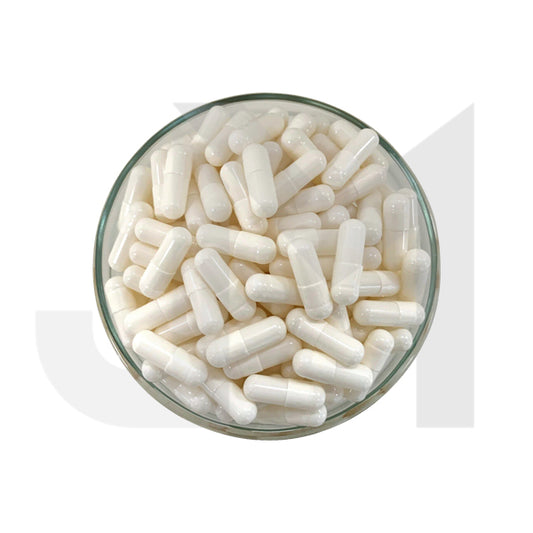
Bulk Ginger & CBD Capsules Wholesale UK
This product is sold as a bulk, unbranded item and is not intended for direct consumer sale. As ...-50%Bulk Ginger & CBD Capsules Wholesale UK
This product is sold as a bulk, unbranded item and is not intended for direct consumer sale. As ...Login to view priceSale -

Bulk Standard & Max Shiitake Mushroom Halal Gummies
For Price Beating, use our Automated Price Beating Service once you've signed in! For Large Orde...-88%Bulk Standard & Max Shiitake Mushroom Halal Gummies
For Price Beating, use our Automated Price Beating Service once you've signed in! For Large Orde...Login to view priceSale -

Bulk Shiitake Mushroom Powder Wholesale UK
For Price Beating, use our Automated Price Beating Service once you've signed in! For Large Orde...Bulk Shiitake Mushroom Powder Wholesale UK
For Price Beating, use our Automated Price Beating Service once you've signed in! For Large Orde...Login to view price -

Bulk Pure 500mg Shiitake Mushroom Capsules Wholesale UK
Introducing our customisable range of Shiitake Mushroom Capsules, allowing you to curate your per...Bulk Pure 500mg Shiitake Mushroom Capsules Wholesale UK
Introducing our customisable range of Shiitake Mushroom Capsules, allowing you to curate your per...Login to view price -

Bulk Oyster Mushroom Powder Wholesale UK
For Price Beating, use our Automated Price Beating Service once you've signed in! For Large Orde...Bulk Oyster Mushroom Powder Wholesale UK
For Price Beating, use our Automated Price Beating Service once you've signed in! For Large Orde...Login to view price -

Bulk Sea Moss Powder Wholesale UK
For Price Beating, use our Automated Price Beating Service once you've signed in! For Large Orde...Bulk Sea Moss Powder Wholesale UK
For Price Beating, use our Automated Price Beating Service once you've signed in! For Large Orde...Login to view price -

Bulk Pure 20% - 60% Turkey Tail Mushroom Tincture Wholesale UK
.For Price Beating, use our Automated Price Beating Service once you've signed in! For Large O...Bulk Pure 20% - 60% Turkey Tail Mushroom Tincture Wholesale UK
.For Price Beating, use our Automated Price Beating Service once you've signed in! For Large O...Login to view price -

Bulk Pure 20% - 60% Cordyceps Mushroom Tincture Wholesale UK
For Price Beating, use our Automated Price Beating Service once you've signed in! For Large Or...Bulk Pure 20% - 60% Cordyceps Mushroom Tincture Wholesale UK
For Price Beating, use our Automated Price Beating Service once you've signed in! For Large Or...Login to view price -

Bulk Pure 20% - 60% Tremella Mushroom Tincture Wholesale UK
For Price Beating, use our Automated Price Beating Service once you've signed in! For Large Or...Bulk Pure 20% - 60% Tremella Mushroom Tincture Wholesale UK
For Price Beating, use our Automated Price Beating Service once you've signed in! For Large Or...Login to view price -

Bulk Pure 20% - 60% Lions Mane Mushroom Tincture Wholesale UK
For Price Beating, use our Automated Price Beating Service once you've signed in! For Large Or...Bulk Pure 20% - 60% Lions Mane Mushroom Tincture Wholesale UK
For Price Beating, use our Automated Price Beating Service once you've signed in! For Large Or...Login to view price -

Bulk Pure 20% - 60% Chaga Mushroom Tincture Wholesale UK
For Price Beating, use our Automated Price Beating Service once you've signed in! For Large Or...Bulk Pure 20% - 60% Chaga Mushroom Tincture Wholesale UK
For Price Beating, use our Automated Price Beating Service once you've signed in! For Large Or...Login to view price -

Bulk Pure 20% - 60% Reishi Mushroom Tincture Wholesale UK
For Price Beating, use our Automated Price Beating Service once you've signed in! For Large Or...Bulk Pure 20% - 60% Reishi Mushroom Tincture Wholesale UK
For Price Beating, use our Automated Price Beating Service once you've signed in! For Large Or...Login to view price -

Bulk Pure 20% - 60% Maitake Mushroom Tincture Wholesale UK
For Price Beating, use our Automated Price Beating Service once you've signed in! For Large Or...Bulk Pure 20% - 60% Maitake Mushroom Tincture Wholesale UK
For Price Beating, use our Automated Price Beating Service once you've signed in! For Large Or...Login to view price -

Bulk Halal Standard & Max Mushroom Complex Gummies
For Price Beating, use our Automated Price Beating Service once you've signed in! For Large Orde...Bulk Halal Standard & Max Mushroom Complex Gummies
For Price Beating, use our Automated Price Beating Service once you've signed in! For Large Orde...Login to view price -

Bulk Max Mushroom Complex Vegan Gummies
For Price Beating, use our Automated Price Beating Service once you've signed in! For Large Orde...Bulk Max Mushroom Complex Vegan Gummies
For Price Beating, use our Automated Price Beating Service once you've signed in! For Large Orde...Login to view price -

Bulk Standard Mushroom Complex Vegan Gummies
For Price Beating, use our Automated Price Beating Service once you've signed in! For Large Orde...Bulk Standard Mushroom Complex Vegan Gummies
For Price Beating, use our Automated Price Beating Service once you've signed in! For Large Orde...Login to view price -

Bulk Mushroom Complex Capsules Wholesale UK
For any supplier seeking to offer the latest in nootropic wellness supplements and establish thei...Bulk Mushroom Complex Capsules Wholesale UK
For any supplier seeking to offer the latest in nootropic wellness supplements and establish thei...Login to view price -

Bulk Mushroom Complex Powder Wholesale UK
For Price Beating, use our Automated Price Beating Service once you've signed in! For Large Orde...Bulk Mushroom Complex Powder Wholesale UK
For Price Beating, use our Automated Price Beating Service once you've signed in! For Large Orde...Login to view price -

Bulk Pure 500mg Maitake Mushroom Capsules Wholesale UK
For any supplier seeking to offer the latest in nootropic wellness supplements and establish thei...Bulk Pure 500mg Maitake Mushroom Capsules Wholesale UK
For any supplier seeking to offer the latest in nootropic wellness supplements and establish thei...Login to view price -

Mount Shilajit Pure Resin 100g
SALE OR RETURN GUARANTEE available for this product!Return within 120 days if unsold (see terms)D...SALE OR RETURN GUARANTEEMount Shilajit Pure Resin 100g
SALE OR RETURN GUARANTEE available for this product!Return within 120 days if unsold (see terms)D...SALE OR RETURN GUARANTEELogin to view price -

Mount Shilajit Pure Resin 50g
SALE OR RETURN GUARANTEE available for this product!Return within 120 days if unsold (see terms)E...SALE OR RETURN GUARANTEESALE OR RETURN GUARANTEE available for this product!Return within 120 days if unsold (see terms)E...SALE OR RETURN GUARANTEELogin to view price -

Bulk Max Maitake Vegan Gummies
For Price Beating, use our Automated Price Beating Service once you've signed in! For Large Orde...Bulk Max Maitake Vegan Gummies
For Price Beating, use our Automated Price Beating Service once you've signed in! For Large Orde...Login to view price -
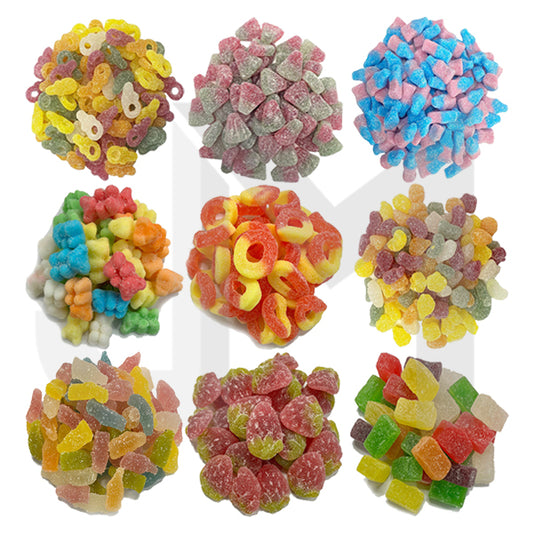
Bulk Standard Maitake Vegan Gummies
For Price Beating, use our Automated Price Beating Service once you've signed in! For Large Orde...-80%Bulk Standard Maitake Vegan Gummies
For Price Beating, use our Automated Price Beating Service once you've signed in! For Large Orde...Login to view priceSale -

Bulk Max Maitake Halal Gummies
For Price Beating, use our Automated Price Beating Service once you've signed in! For Large Orde...Bulk Max Maitake Halal Gummies
For Price Beating, use our Automated Price Beating Service once you've signed in! For Large Orde...Login to view price -

Bulk Standard Maitake Halal Gummies
For Price Beating, use our Automated Price Beating Service once you've signed in! For Large Orde...-84%Bulk Standard Maitake Halal Gummies
For Price Beating, use our Automated Price Beating Service once you've signed in! For Large Orde...Login to view priceSale
Wholesale Nootropic & Supplement Products Q & A
What are nootropics?
Nootropics are brain health boosting supplements that have been created from natural resources, like mushrooms. Nootropics are usually eaten or swallowed in capsule form, but can also come in sprays, tinctures and other vehicles. They can consist of a huge variety of ingredients, including caffeine, Maritime Pine Bark Extract, L-tyrosine, L-theanine and much more. Each of these ingredients cater to different brain functioning, and so the blend of nootropics you choose will need to be selected carefully.
Who benefits from nootropics?
The evidence supplied by science has suggested that nootropics work across multiple brain pathways depending on the ingredients within them. Therefore, nootropics can serve multiple purposes. People who experience mental fog, sleeping problems, mood fluctuations, low mood, inattention, cognitive issues or are at the early stages of an advancing neurological disorder can benefit from trying nootropics. If you are taking any medication prescribed by a doctor then this doctor will need to be consulted before adding nootropics into your diet.
How do you take nootropics?
Nootropics can be administered in a number of ways. You can take them orally as capsules, in a powder form (added to drinks or foods), as a spray, a tincture oil or as an edible. They are usually very easy to take but some people have preferences as to how they are consumed.
How many types of nootropics are there?
There are more nootropics than are available to list, but they fall into two main categories. Synthetic - which are lab created compounds. And herbal, like ginkgo biloba and panax quinquefolius. More than 100 nootropics can be used to improve brain health. Some of the most commonly used ones are vitamin b, turmeric, St John’s Wort, iodine and Lion’s Mane.
Are there side effects to nootropics?
Nootropics come in different forms and doses. Each will impact the body in a unique way. When a nootropic is taken as per the instructions, nootropics are considered safe - but this doesn’t exempt them from having side effects. It is still important to read about any potential side effects on the label. For example, some nootropics might interact with other medications, including hormonal contraceptives. Others might have side effects like sleepiness / drowsiness and might not be safe to take before driving. Some side effects can be quite pleasant (like feeling extra relaxed) and others can be unpleasant (such as having an upset stomach). If you are having an unpleasant side effect, stop taking the nootropic and consult with an expert on which nootropic might be better suited.
Do nootropics need medical supervision to take?
Nootropics can be purchased over the counter or on the website like JM Wholesale. You do not need a prescription to access the healing effects of nootropics. However, that does not mean medical supervision is unnecessary. It really depends what you are using the nootropic for. For example, if you are being treated for a neurological disorder or mood disorder like bipolar, you should consult your doctor before taking nootropics. This is because some nootropics can interact with medications and change the way they work. If you are taking nootropics for general better brain health and are not taking any other medications, then you won’t need medical supervision. However we recommend you always let healthcare practitioners know if you are taking nootropics.
When should you take nootropics?
Everyone is different. If you are taking nootropics for enhanced alertness and energy, it might be a good idea to take them in the morning with breakfast. Always take supplements with food, and not on an empty stomach. If you are taking nootropics for better sleep, it is wise to do this in the evening. There is no standardised time to take nootropics and it might be a case of trial and error to see what works for you.
Which conditions can be improved by nootropics?
Nootropics have been used by people to counteract the symptoms of various neurological disorders including narcolepsy, dementia / alzheimer's disease, memory impairment, ADHD, symptoms associated with autism, anxiety, insomnia, parkinson's disease, epilepsy and adjustment disorders.
Are nootropics safe?
It is important to buy from a reputable brand. A reputable brand will be transparent about the ingredients within the nootropics and offer third party lab testing reports so that you know the product has been safely tested. It is not safe to buy nootropics from unregulated sources, and it is not advisable to try and make your own nootropics.
What are some popular nootropics?
- Caffeine ☕: Caffeine is a powerful stimulant and the most commonly consumed psychoactive substance in the world! It is found naturally in beverages like coffee and tea, and in products such as chocolate and certain medications. Caffeine works by blocking adenosine receptors in your brain, keeping you alert and awake. It can potentially enhance focus, mood, and mental performance, making it a popular choice for those seeking a quick mental boost.
- L-Theanine 🍵: L-Theanine is an amino acid primarily found in green tea leaves and certain types of mushrooms. It's particularly known for promoting relaxation without drowsiness, making it synergistic with caffeine. It could potentially help increase focus, reduce stress, and improve sleep quality. It is often used in nootropics for its potential ability to smooth out the jitters from stimulants like caffeine while enhancing their cognitive-promoting effects.
- Bacopa Monnieri 🌼: A staple plant in traditional Ayurvedic medicine. It is considered an adaptogen, meaning it could help the body adapt to stress, while exerting a normalising effect upon bodily processes. Bacopa Monnieri has been shown in studies to improve memory, reduce anxiety, and have a calming effect. Its memory-enhancing effects are most noticeable after consistent use over several weeks or months, according to regular users.
- Rhodiola Rosea 🌻: Rhodiola Rosea is a plant that grows in the cold, mountainous regions of Europe and Asia. Its roots are considered adaptogens and contain more than 140 active ingredients, the two most potent being rosavin and salidroside. Rhodiola Rosea is used to potentially enhance cognitive function, reduce fatigue, and improve symptoms of depression. It could also improve exercise performance and reduce mental fatigue.
- Ginkgo Biloba 🌳: One of the oldest living tree species, and its leaves are used in modern medicine for their potentially cognitive-enhancing effects. Ginkgo Biloba is believed to improve cognitive function by promoting good blood circulation in the brain and protecting the brain from neuronal damage. It could also improve memory and speed of cognitive
- Panax Ginseng: Panax Ginseng, also known as Asian ginseng, has been used in traditional Chinese medicine for centuries for its ability to supposed fight fatigue and enhance physical and cognitive performance. It contains two significant compounds: ginsenosides and gintonin, which work together to provide neuroprotective, anti-inflammatory, and antioxidant effects.
- Ashwagandha: Ashwagandha, also known as "Indian Ginseng," is an ancient medicinal herb known for its adaptogenic properties. It's renowned for its ability to manage stress by regulating the body's physiological responses to stressors. Moreover, Ashwagandha may enhance brain function, lower blood sugar and cortisol levels, and help fight symptoms of anxiety and depression.
- Lion's Mane Mushroom 🍄: Lion's Mane is a unique nootropic due to its potent and studied neuroprotective effects. It is believed to boost mental functioning by promoting the growth and health of brain cells. Studies have shown that Lion's Mane can improve mental functioning in people with mild cognitive impairment and could potentially support those suffering with neurodegenerative diseases like Alzheimer's.
- Creatine 💪: Creatine is a substance that is found naturally in muscle cells. It helps your muscles produce energy during heavy lifting or high-intensity exercise. However, it also has benefits for the brain. Creatine supplements can improve memory and thinking skills in people who don't eat meat. In high-pressure situations, creatine can also give a cognitive boost.
- Alpha GPC 🧠: A natural compound that works quickly and delivers choline to the brain and increase the production of acetylcholine along with cell membrane phospholipids. It's thought to support cognitive function, memory, and mood.
- Citicoline: Citicoline is a brain chemical that occurs naturally in the body. As a medicine, it is used for Alzheimer's disease and other types of dementia, head trauma, cerebrovascular disease such as stroke, age-related memory loss, Parkinson's disease, and glaucoma.
- Uridine Monophosphate 🍺: Uridine Monophosphate is a nucleotide base that is found in high amounts in beer which potentially improves brain function and synaptic plasticity. It can enhance memory and learning capability and is often stacked with choline sources for an even more potent cognitive boost.
- Phosphatidylserine: Phosphatidylserine is a fat-soluble amino acid derivative compound that is fat-soluble and found in high amounts in the brain. It contributes to cognitive functioning and is known to improve memory and mood, and slow cognitive decline.
- Magnesium L-Threonate: Phosphatidylserine is a fat-soluble amino acid derivative compound that is fat-soluble and found in high amounts in the brain. It contributes to cognitive functioning and is known to improve memory and mood, and slow cognitive decline.
- Curcumin 🟠: Curcumin, the active ingredient in Turmeric, is a potent antioxidant and anti-inflammatory compound that has been shown to enhance mood and cognitive function, largely due to its ability to cross the blood-brain barrier.
- Pterostilbene: Pterostilbene is a polyphenol that is found in blueberries and grapes. It is similar to resveratrol but is more bioavailable and has a longer half-life. It's a potent antioxidant and anti-inflammatory agent and is thought to enhance cognition and heart health.
- Nicotine 🚬: Nicotine, found naturally in tobacco, is both a sedative and a stimulant. As a nootropic, it could potentially enhance cognition, attention, and memory. However, nicotine is highly addictive and should be used with caution.
- Taurine 🐂: Taurine is an organic acid found in foods and in the human body, especially in the brain, eyes, muscles, and heart. It aids various bodily functions, including cardiovascular function, development and function of skeletal muscle, and central nervous system function. It's known for its potential to reduce anxiety and improve sleep quality.
- Tyrosine: Tyrosine is an amino acid that is used by the body to produce dopamine and noradrenaline, which are both associated with mood and stress response. It is believed to improve cognitive performance, particularly in stressful situations.
- 5-HTP 😄: 5-Hydroxytryptophan is a compound produced in the body from the amino acid tryptophan. It is a direct precursor to the neurotransmitter serotonin, which is responsible for regulating mood, appetite, and sleep. As a supplement, 5-HTP is believed to enhance mood and reduce anxiety.
- L-Tryptophan: L-Tryptophan is an essential amino acid, meaning the body can't produce it and it must be obtained from diet. It is a precursor to the neurotransmitter serotonin, which regulates mood and sleep. Supplementation with L-Tryptophan can lead to improved mood, reduced anxiety, and better sleep quality.
- GABA: Gamma-Aminobutyric Acid is an amino acid produced naturally in the brain. It functions as a neurotransmitter, facilitating communication among brain cells. GABA’s big role in the body is to reduce the activity of neurons in the brain and central nervous system, which in turn has a broad range of effects on the body and mind, including increased relaxation, reduced stress, a more calm, balanced mood, alleviation of pain, and a boost to sleep.
- N-Acetyl L-Cysteine (NAC): NAC is a supplement form of cysteine, a semi-essential amino acid. Consuming adequate cysteine and NAC is important for a variety of health reasons — including replenishing the most powerful antioxidant in your body, glutathione. It can also help with chronic respiratory conditions, fertility, and brain health.
- L-Phenylalanine: L-Phenylalanine is an essential amino acid that the body uses to produce proteins, as well as several neurotransmitters including dopamine and norepinephrine. It can help support mood, learning, and memory.
- L-Carnitine: L-Phenylalanine is an essential amino acid that the body uses to produce proteins, as well as several neurotransmitters including dopamine and norepinephrine. It can help support mood, learning, and memory.
- Acetyl-L-Carnitine (ALCAR): ALCAR is a form of L-Carnitine that can cross the blood-brain barrier. It's known for its ability to help reduce both physical and mental fatigue while improving cognitive function.
- Melatonin 😴: Melatonin is a hormone that your brain produces in response to darkness, which helps with the timing of your circadian rhythms (24-hour internal clock) and with sleep. As a supplement, it is often used to help with insomnia.
- SAMe (S-Adenosyl Methionine): Melatonin is a hormone that your brain produces in response to darkness, which helps with the timing of your circadian rhythms (24-hour internal clock) and with sleep. As a supplement, it is often used for the short-term treatment of insomnia.
- Kava 🌿: Kava is a plant native to the South Pacific, which has been used for centuries for its calming and therapeutic effects. The root of the plant is used to produce a drink with sedative and anesthetic properties. Kava is also available in supplement form and is often used to help with stress, anxiety, and sleep disorders.
Please note, this content is not medical advice. We make no medical claims about our products.










































